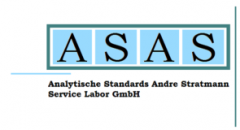ASAS offers three screening assays, based on GSH- and GSSG-trapping, to detect protein-reactive extractables
Screening methods to detect electrophilic compounds, which are potentially protein-reactive, are well established. Many of them are based on the reaction of the free thiol group of glutathione (GSH) with electrophilic compounds. However, there is another group of protein-reactive compounds, those which can attack disulfide bonds (e.g. rubber vulcanization agents like polysulfides). Such compounds can be trapped by GSSG, the disulfide of GSH.
Extractables, which can be converted into reactive species (pro-electrophiles) by e.g. aging processes or γ-irradiation, are trapped with GSH after electrochemical activation.
Extracts of packaging or single use material are treated with GSH and/or GSSG, the reaction products are identified using high-resolution accurate LC-MS.
If a compound was found to be reactive in one of the above-mentioned screening methods, there is a certain likelihood to react also with therapeutic proteins. The knowledge of the identity of reactive compounds is essential for the characterization of potentially modified proteins. Results of the GSH/GSSG screening will help sponsors to fulfill FDA demands, as described in Guidance for Industry Immunogenicity Assessment for Therapeutic Protein Products. “Sponsors should conduct a comprehensive extractables and leachables laboratory assessment using multiple analytical techniques to assess the attributes of the container-closure system that could interact with and degrade protein therapeutic products. “
The following services are also available:
Target and non-target screening of E&L’s by HR-LC-MS.
Structure confirmation and structure elucidation by HR-LC-MS.
Fractionation and preparative HPLC purification.
Method development of quantitative methods using ion-trap, orbitrap or triple quad MS.
Please note, ASAS is NOT certified according to DIN EN ISO 17025 or GLP/GMP. Experimental data are not intended for submission to regulatory authorities.
However, for internal purposes (e.g. packaging material selection, structure confirmation before synthesis of a reference standard, method development before validation), ASAS is a fast and cost effective alternative to certified contract laboratories.
